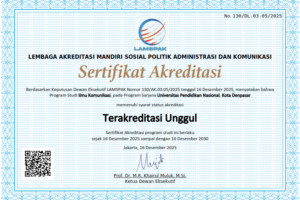
Dunning-Kruger Effect: When You Feel Like the Smartest Person in the Room, But Actually…
Ever met someone who speaks with absolute confidence, even though they’re clearly wrong? Well, there’s actually a theory for this, and it’s called the Dunning-Kruger Effect.
This theory came about thanks to a true story of a robber named McArthur Wheeler in the U.S. Back in 1995, Wheeler confidently robbed a bank… without wearing a mask! His face was clearly recorded by CCTV, and of course, he was easily caught by the police. When asked why he didn’t cover his face, Wheeler said: “But I rubbed lemon juice on my face, so the camera shouldn’t have seen me!”
Yes, he really believed that bizarre idea. From this case, psychologists David Dunning and Justin Kruger began studying the phenomenon of people who think they’re smart, when in reality, they actually know very little.
So, What is the Dunning-Kruger Effect?
In simple terms, this effect describes a condition where:
People with low competence are often overconfident, because they don’t realize how little they actually know.
Meanwhile, truly competent people tend to doubt themselves, because they understand just how vast knowledge really is.
The result? The world often ends up being dominated by the loud voices of those who “don’t really know,” instead of the genuine experts.
Everyday Examples
A friend who attends a one-day seminar suddenly thinks they’re a stock market expert.
Someone who reads one health article online and then argues with a doctor.
Or the person who watches one cooking tutorial and immediately believes they can open a restaurant.
The funny part? All of this happens because they don’t know what they don’t know.
How to Avoid Falling Into It
Keep learning – the more you know, the more you realize how much you don’t know.
Be open to criticism – feedback is essential for self-reflection.
Don’t get overconfident too quickly – double-check whether what you know is actually correct.
Distinguish opinion from fact – especially in social media debates.
The Dunning-Kruger Effect is a reminder for all of us: confidence is important, but don’t let it turn into “overconfidence” fueled by ignorance. Just like McArthur Wheeler who believed lemon juice could make him invisible to cameras, we too can fall into the trap of the illusion of knowledge. A little humility can go a long way in making us wiser learners and more thoughtful contributors in any discussion.



